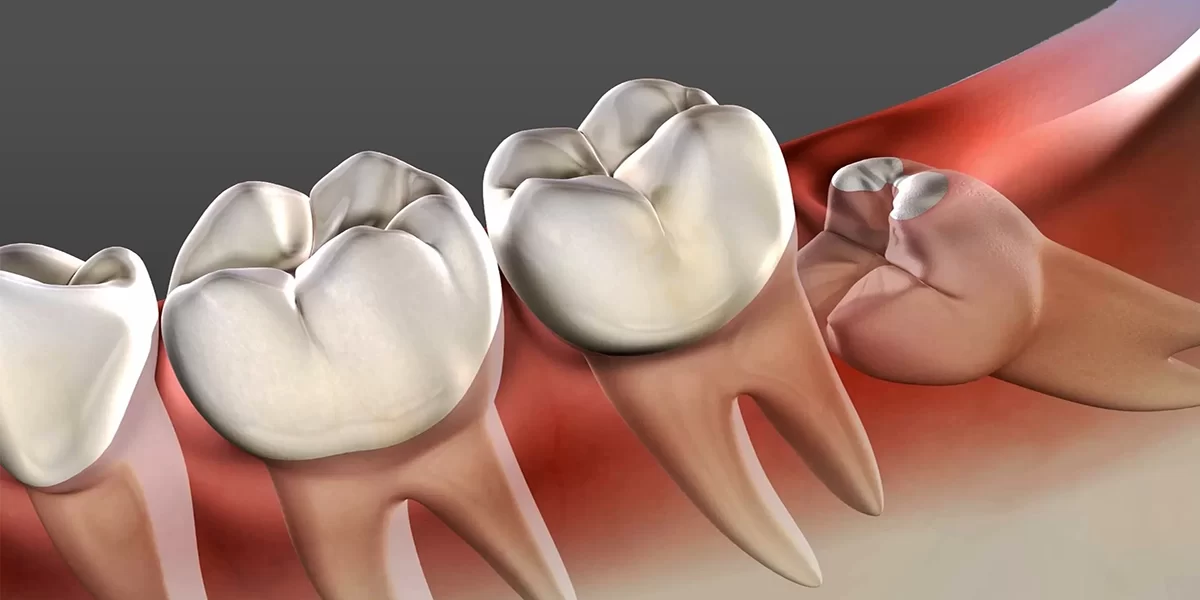8 important points about Wisdom Teeth Removal
One of the most frequent dental treatments is the extraction of wisdom teeth. The wisdom teeth are often removed as they begin to erupt and cause discomfort or when they become impacted. In this blog post, we’ll go over the main causes of wisdom tooth removal as well as its benefits and drawbacks. We’ll also let you know what to anticipate during the operation.
Why is it necessary to remove wisdom teeth?
The urge to remove wisdom teeth arises for a variety of causes. They can become impacted, which means that they don’t erupt properly and get lodged in the gingival tissue, is one of the most frequent causes. Pain, edoema, and infection may be brought on by an impacted tooth. Additionally, they may harm nearby teeth. Wisdom teeth can crowd other teeth, which makes it difficult to adequately maintain them and may necessitate their removal. Gum disease and tooth decay may result from this. Sometimes there is no alternative to having the wisdom teeth removed if these issues arise.
What advantages do wisdom teeth extractions have?
Reduce Discomfort and Pain
The ability to reduce or even eliminate pain and discomfort is one of the most popular benefits of having a wisdom tooth removed. Wisdom teeth that have impacted can be extremely painful. A wisdom tooth extraction can ease this discomfort.
Prevent Gum Disease and Infection
Another benefit is that by reducing the risk of infection and gum disease, it can help you have better overall oral health. Wisdom teeth can become infected and result in an abscess if they are not removed. This can be quite painful and may need to be treated with surgery or antibiotics.

Preserving Good Dental Health
The other teeth in the mouth may become crowded by wisdom teeth. Lack of space for the wisdom teeth to erupt results in other issues, such as foul breath from food particles that become lodged, and makes it challenging to adequately clean them. Gum disease and tooth decay may result from this. Getting your wisdom teeth out can keep your mouth healthy.
What drawbacks do wisdom tooth extractions have?
Pain and Irritation
Although lowering discomfort and agony is a benefit, there are drawbacks, including the possibility of unpleasant side effects after wisdom teeth removal. Swelling and Bleeding
The possibility of minor bleeding and swelling following tooth extractions is another drawback. Typically, this won’t be very bad and will go away in a few days.
Dry Socket A different possible problem is dry socket, which happens when the blood clot that forms in the surgical socket becomes loose. Pain and discomfort may result from this.
What to anticipate during the removal of your wisdom teeth
Under local anaesthesia, a dentist or oral surgeon will often remove wisdom teeth. This implies that even though you will be awake during the process, there won’t be any discomfort. In order to expose the wisdom tooth and remove it, the surgeon will make an incision in the gum tissue.
You should anticipate some soreness and swelling following the surgery. Additionally, there may be some bleeding and pain. For the first few days following surgery, it’s crucial to rest and take it easy. Straws, smoking, and alcohol use should also be avoided because they can lead to dry socket.
Do your wisdom teeth bother you? Call Oakstone Dental today
We are aware that impacted wisdom teeth can cause severe discomfort. We advise you to get in touch with us at Oakstone Dental if you are feeling any of these symptoms because prompt treatment can lessen the possibility of developing other common issues. We can evaluate your particular circumstances and give you the most suitable treatment alternatives.







